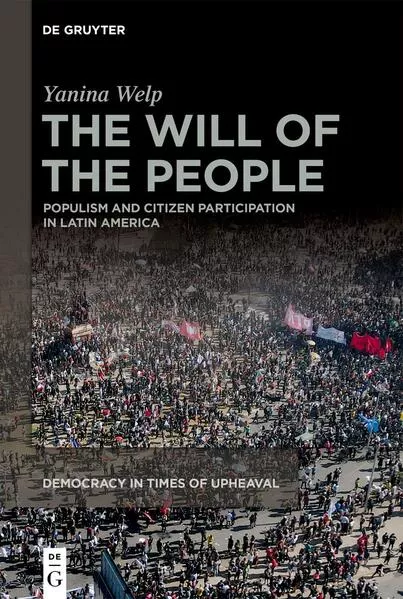
- Publikationen ca: 4
- Fragen & Antworten
Yanina Welp
Yanina Welp is a research fellow at the Albert Hirschman Centre on Democracy, Graduate Institute (Switzerland), editorial coordinator at Agenda Pública (Spain) and co-founder of the Red de Politologas. She finished her Habilitation (highest degree in the Swiss German academic system) in 2015 at the University of St.Gallen, with the venia legendi in Latin American Studies and she holds two Bachelor degrees in Social Communication and Political Science from the University of Buenos Aires (Argentina), and a PhD in Political and Social Sciences from the Pompeu Fabra University (Spain). Her main areas of study are democracy and democratization, political representation, the introduction and practices of mechanisms of direct and participatory democracy, and digital media and politics, i.e. ‘democratic innovations’. She has published extensively on these topics in academic journals and books.
The Will of the People
The Will of the People: Populism and Citizen Participation in Latin America argues that while populist leaders typically claim to speak 'in the name of the people', they rarely allow the people to express their opinion independently through institutions of citizen participation.
The Will of the People
The Will of the People: Populism and Citizen Participation in Latin America argues that while populist leaders typically claim to speak 'in the name of the people', they rarely allow the people to express their opinion independently through institutions of citizen participation.
The Will of the People
The Will of the People: Populism and Citizen Participation in Latin America argues that while populist leaders typically claim to speak 'in the name of the people', they rarely allow the people to express their opinion independently through institutions of citizen participation.
The Will of the People
The Will of the People: Populism and Citizen Participation in Latin America argues that while populist leaders typically claim to speak 'in the name of the people', they rarely allow the people to express their opinion independently through institutions of citizen participation.



